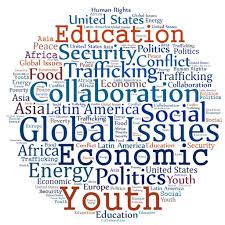The Transformative Power of Arts and Culture in Building Sustainable Cities
The pursuit of sustainable urban environments is paramount in our rapidly changing world. This necessitates recognizing the crucial role of arts and culture in fostering resilient and vibrant urban ecosystems. Integrating arts and culture into urban development transcends mere aesthetic enhancement; it acts as a catalyst for economic prosperity, social equity, and environmental stewardship. This article analyzes the multifaceted contributions of arts and culture to the creation of thriving, sustainable cities, drawing upon established theories and models from urban planning, sociology, and economics. Key concepts examined include: creative industries economics (the economic impact of the arts and culture sector), social capital theory (the role of social interaction in building community), sustainable urban design (integrating environmental considerations into urban planning), constructivist learning theories (the importance of experiential learning), urban regeneration (reviving neglected urban areas), destination branding (creating attractive city images), cultural diplomacy (promoting cross-cultural understanding), and adaptive capacity (a city's ability to respond to change).
Economic and Social Cohesion through Cultural Vibrancy
The arts and culture sector functions as a significant economic driver, aligning with principles of creative industries economics. Cultural institutions such as museums and theaters attract tourists, generating substantial revenue through cultural tourism and stimulating local businesses. Input-output analysis can demonstrate the multiplier effect of this economic activity, showcasing its ripple effect throughout the local economy and diverse job creation. Furthermore, social capital theory elucidates the role of arts and culture in fostering social cohesion. Shared cultural experiences, fostered through events and community engagement, build strong social networks, strengthening community bonds and promoting a sense of belonging across diverse populations. This is fundamentally linked to the concept of place attachment—a strong sense of identity and connection to a specific location, strengthened by shared cultural experiences.
Environmental Sustainability and Educational Empowerment
Integrating arts and culture into urban planning significantly contributes to environmental sustainability. Applying principles of sustainable urban design, public art installations can raise awareness of environmental challenges and encourage eco-conscious behavior. Cultural initiatives can transform underutilized spaces into green areas or community gardens, improving urban biodiversity and mitigating carbon emissions, directly impacting ecological footprint calculations. Moreover, arts education is vital for cultivating creativity, critical thinking, and problem-solving skills, as emphasized by constructivist learning theories. Investing in arts programs equips citizens, particularly young people, with the essential skills needed for participating in and shaping sustainable urban development.
Urban Revitalization, Global Tourism, and Cultural Diplomacy
Creative placemaking initiatives leverage arts and culture to revitalize neglected urban areas, aligning with urban regeneration principles. Street art, repurposed buildings, and community-led projects transform communities, attracting both residents and tourists, and consequently increasing property values. Applying destination branding principles, investments in arts and culture enhance a city's global appeal, attracting tourism and generating substantial economic benefits. Cultural diplomacy theories further highlight the role of arts and culture in fostering cross-cultural understanding and international collaboration. Cultural exchanges and partnerships promote mutual respect and contribute to a more globally connected and peaceful world.
Building Resilient, Innovative, and Enduring Cities
Arts and culture contribute significantly to building resilient and adaptable cities. Traditional knowledge systems inherent in cultural practices often contain invaluable insights into sustainable resource management. Integrating these practices into urban planning allows cities to leverage past wisdom to develop innovative strategies for a more sustainable future, enhancing their adaptive capacity. The creative sector serves as a hub for social innovation, with artists and entrepreneurs developing creative solutions to environmental and social challenges. Supporting this sector unlocks a wealth of innovative ideas, driving social progress and contributing to the achievement of sustainable development goals. Finally, investing in arts and culture creates a lasting legacy for future generations, ensuring the long-term prosperity and well-being of urban communities.
Conclusion and Recommendations
In conclusion, integrating arts and culture into urban development offers substantial benefits across economic, social, environmental, and global dimensions. A holistic approach, incorporating principles from urban planning, economics, and sociology, is vital to fully realizing the transformative potential of arts and culture. Future research should focus on developing sophisticated econometric models to precisely measure the economic and social impacts of arts and culture initiatives, and investigate the causal mechanisms by which arts-based interventions enhance urban resilience. This interdisciplinary approach will refine strategies for integrating arts and culture into urban planning, ensuring the creation of sustainable and vibrant cities well-equipped to navigate the challenges of the 21st century. Recommendations include targeted funding for arts and culture programs within urban development budgets, the creation of dedicated positions for arts and culture specialists within city planning departments, and the establishment of participatory community engagement processes to ensure equitable access and meaningful participation in arts and culture initiatives.
Reader Pool: Considering the demonstrated multifaceted benefits, how can we best incentivize collaboration between urban planners, cultural organizations, and community stakeholders to create truly sustainable and culturally vibrant cities?






